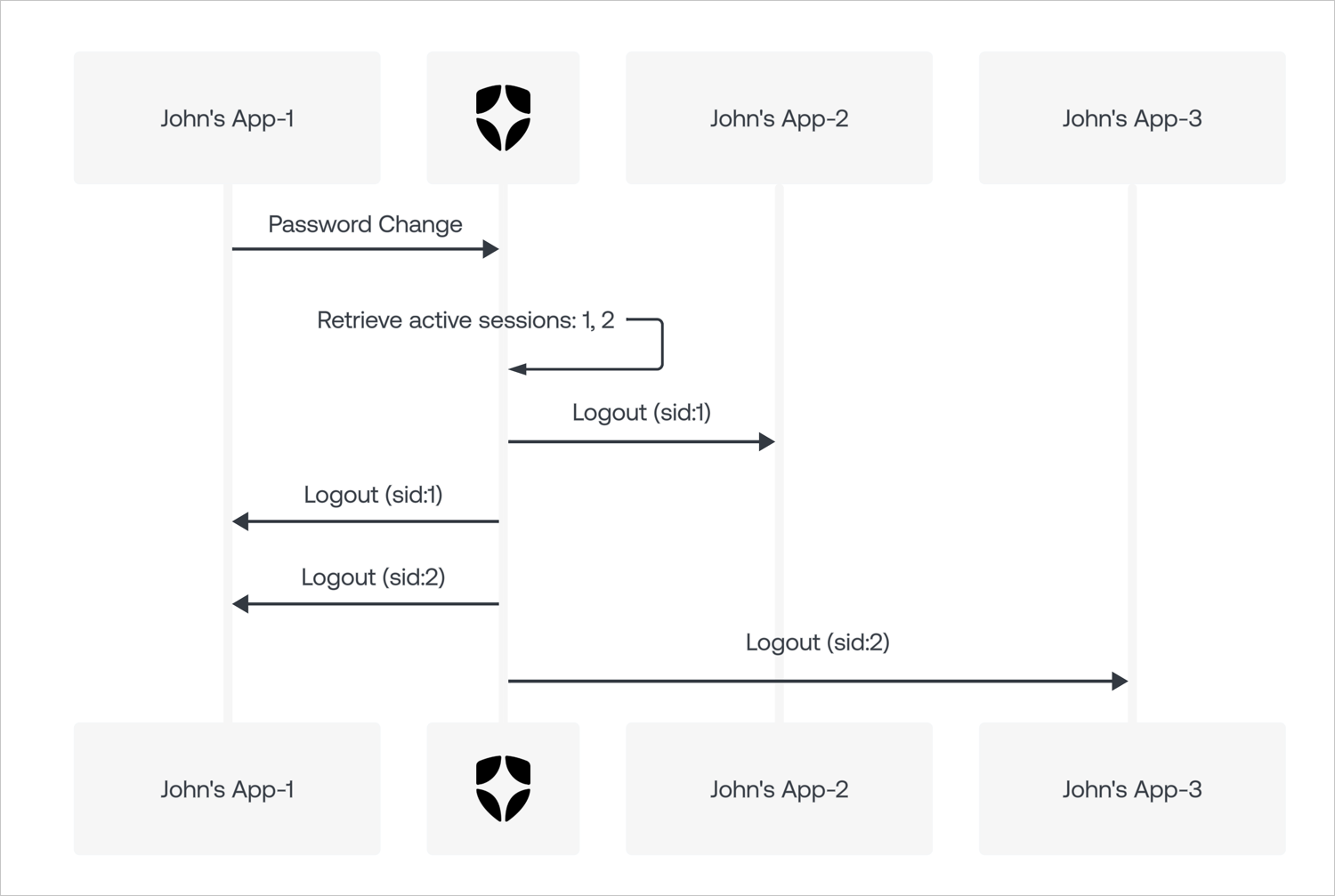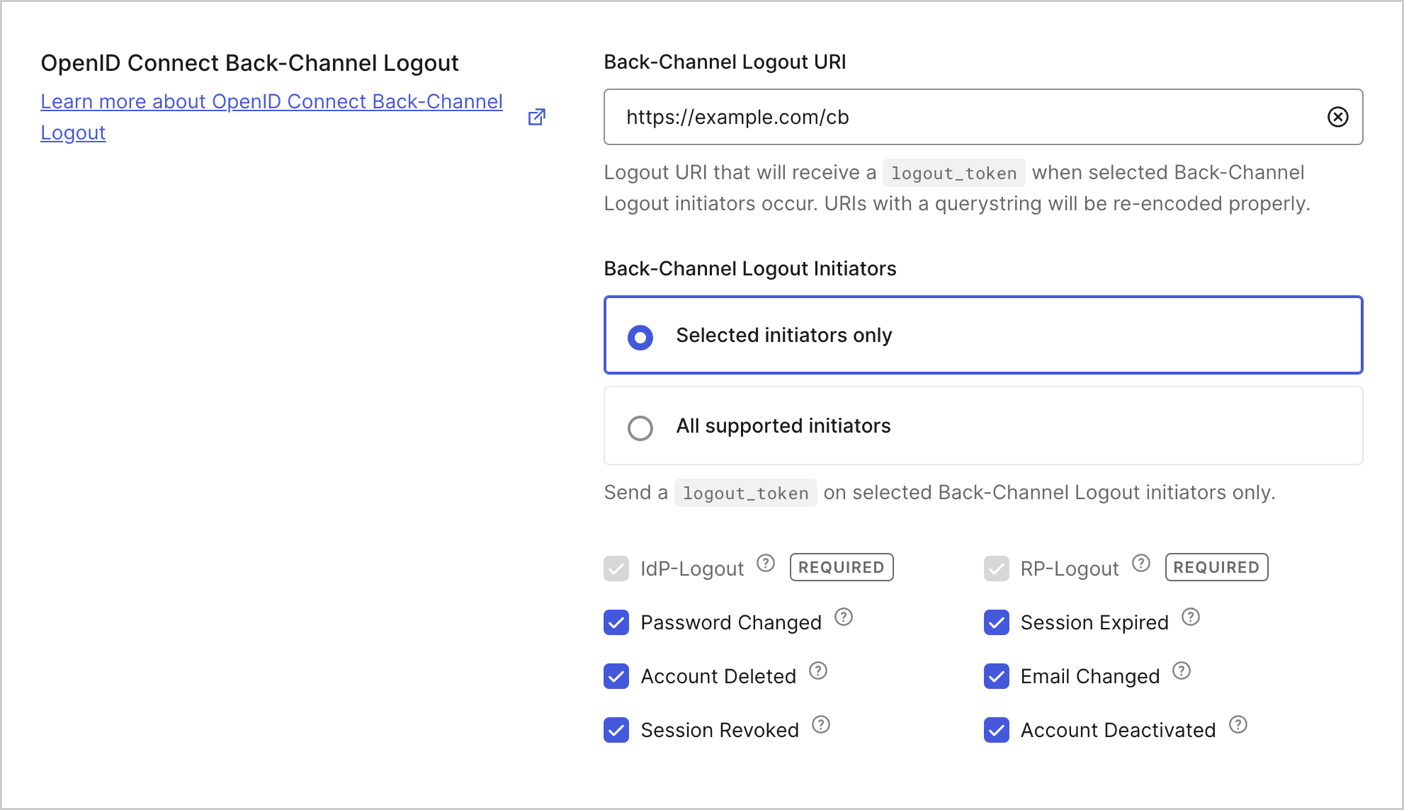How OIDC Back-Channel Logout Initiators work
Initiators bind an OIDC Back-Channel Logout response to a session termination event. They capture the event and use it to trigger an OIDC logout token in all applications associated with the given session.Initiators do not control session management in your tenant, including session termination events.

Configure OIDC Back-Channel Logout Initiators
You can configure OIDC Back-Channel Logout Initiators with the Auth0 Management API.Management API
You can configure the OIDC Back-Channel Logout Initiators for an application with the Management API by using the Update a Client endpoint.-
Get an Management API access token with the
update:clientsscope. -
Call the Update a Client endpoint with the appropriate configuration data in the payload. For example, to log out an application after a password change event, provide the following:
JSON
Properties
Thebackchannel_logout_initiators object supports the following properties:
| Property | Type | Required? | Description | Supported values |
|---|---|---|---|---|
mode | string | Required | Configuration method for enabling initiators. | custom, all |
selected_initiators | array | Required if mode is custom | List of initiators to enable. | rp-logout, idp-logout, password-changed, session-expired, session-revoked, account-deleted, email-identifier-changed |
mode property
Themode property determines the configuration method for enabling initiators.
By default, it is set to custom, which allows you to specify which initiators you want to enable. If you want your application to logout anytime the IdP session ends, set it to all.
The mode property supports the following values:
| Value | Description |
|---|---|
custom | Enables only the initiators listed in the selected_initiators array. |
all | Automatically enables all current and future initiators. |
selected_initiators property
Theselected_initiators property contains the list of initiators to be enabled for the given application.
The selected_initiators property supports the following values:
| Value | Description |
|---|---|
rp-logout | Request was initiated by a relying party (RP). |
idp-logout | Request was initiated by an external identity provider (IdP). |
password-changed | Request was initiated by a password change. |
session-expired | Request was initiated by session expiration. |
session-revoked | Request was initiated by session deletion. |
account-deleted | Request was initiated by an account deletion. |
email-identifier-changed | Request was initiated by an email identifier change. |
Examples
Subscribe an application to all current and future initiators
JSON
Subscribe an application to password-changed initiator only (rp-logout and idp-logout are required)
JSON
Unsubscribe all initiators (rp-logout remains the default)
JSON
Dashboard
Connect Back-Channel Logout can be configured alongside the rest of your application settings. This feature automatically activates once a Back-Channel Logout URI is provided.
Selected initiators only
Only the required initiators (rp-logout and idp-logout) will be subscribed to by default. Any additional initiators, including any added in the future, must first be selected before they can initiate a logout from your application.
Select this option if you want your application to log out only for initiators you select.

